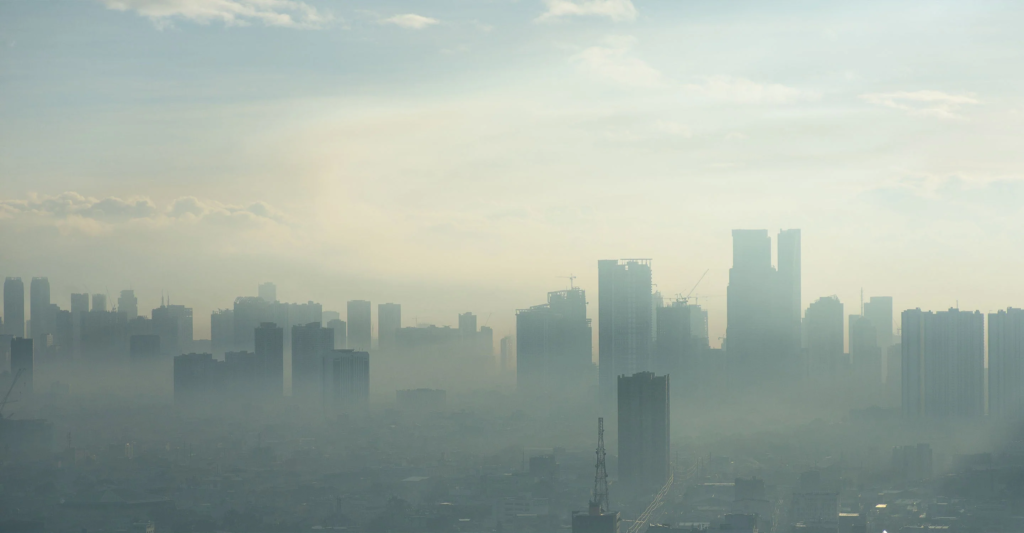Hanoi, Vietnam’s bustling capital and an economic powerhouse in Southeast Asia, is grappling with an escalating environmental crisis. The city has been engulfed in dense smog for weeks, earning it the unenviable title of the world’s most polluted city.
This alarming situation has prompted urgent calls for action, with authorities emphasizing the adoption of electric vehicles (e-vehicles) as a critical step toward combating the crisis.
The Alarming State of Air Pollution in Hanoi
According to AirVisual, a global air pollution monitoring platform, Hanoi recorded PM2.5 levels at a hazardous 266 micrograms per cubic meter on January 3.
These microscopic particles, which are small enough to penetrate deep into the lungs, pose significant health risks to residents, particularly the elderly, children, and individuals with pre-existing respiratory conditions.
Hanoi’s battle with air pollution is not a new challenge. For decades, the city has struggled with severe air quality issues fueled by rapid industrialization, heavy traffic, trash burning, and emissions from factories.
Read : Putin Was Given 21-Gun Salute as He Arrives in Vietnam to Boost Ties
The city’s transformation into a manufacturing hub has come at the cost of its air quality, leaving residents to endure increasingly hazardous conditions.
Read : Vietnam: The Land of Myths, Mountains, and Modernity
The environmental crisis has left residents like Duc, a local citizen, voicing their concerns: “It’s getting harder to breathe.” This sentiment resonates across Hanoi, highlighting the urgency of addressing the growing pollution problem.
Authorities Take Action: Accelerating E-Vehicle Adoption
In response to the escalating crisis, Deputy Prime Minister Tran Hong Ha has called on the transport ministry to expedite the adoption of electric vehicles.
During a meeting on January 2, he emphasized the government’s responsibility to safeguard public health and implement specific, timely measures to address the issue.

The government has set ambitious targets for e-vehicle adoption to curb air pollution. By 2030, the city aims to have 50% of its buses and 100% of its taxis powered by electricity.
This shift toward sustainable transportation is seen as a pivotal step in reducing emissions from one of the primary sources of pollution: vehicular traffic.
E-vehicles offer a cleaner and more sustainable alternative to traditional fuel-powered vehicles, significantly reducing greenhouse gas emissions and particulate matter. The government’s focus on this transition underscores its commitment to tackling the root causes of Hanoi’s air pollution crisis.
A Broader Perspective: Global Pollution Challenges
Hanoi’s environmental crisis reflects a broader global issue. In 2024, Bangladesh was identified as the world’s most polluted country, followed closely by Chad, Pakistan, India, and Kuwait.
These nations face similar challenges, where rapid urbanization and industrial growth have exacerbated pollution levels, creating severe public health risks.

Efforts to combat pollution vary worldwide, with many countries implementing stringent policies to address air quality issues. However, progress remains uneven, and cities like Hanoi serve as a stark reminder of the need for comprehensive and coordinated action to tackle pollution at both local and global levels.
Hanoi’s struggle with air pollution highlights the pressing need for sustainable solutions to address environmental challenges in rapidly growing urban centers.
While the adoption of e-vehicles represents a promising step forward, tackling the root causes of pollution requires a multifaceted approach that includes stricter regulations, improved waste management, and public awareness campaigns.
As Hanoi embarks on its journey toward cleaner air, it joins a global movement to prioritize environmental health and sustainability. The city’s efforts to combat pollution will not only benefit its residents but also serve as a model for other cities facing similar challenges.

